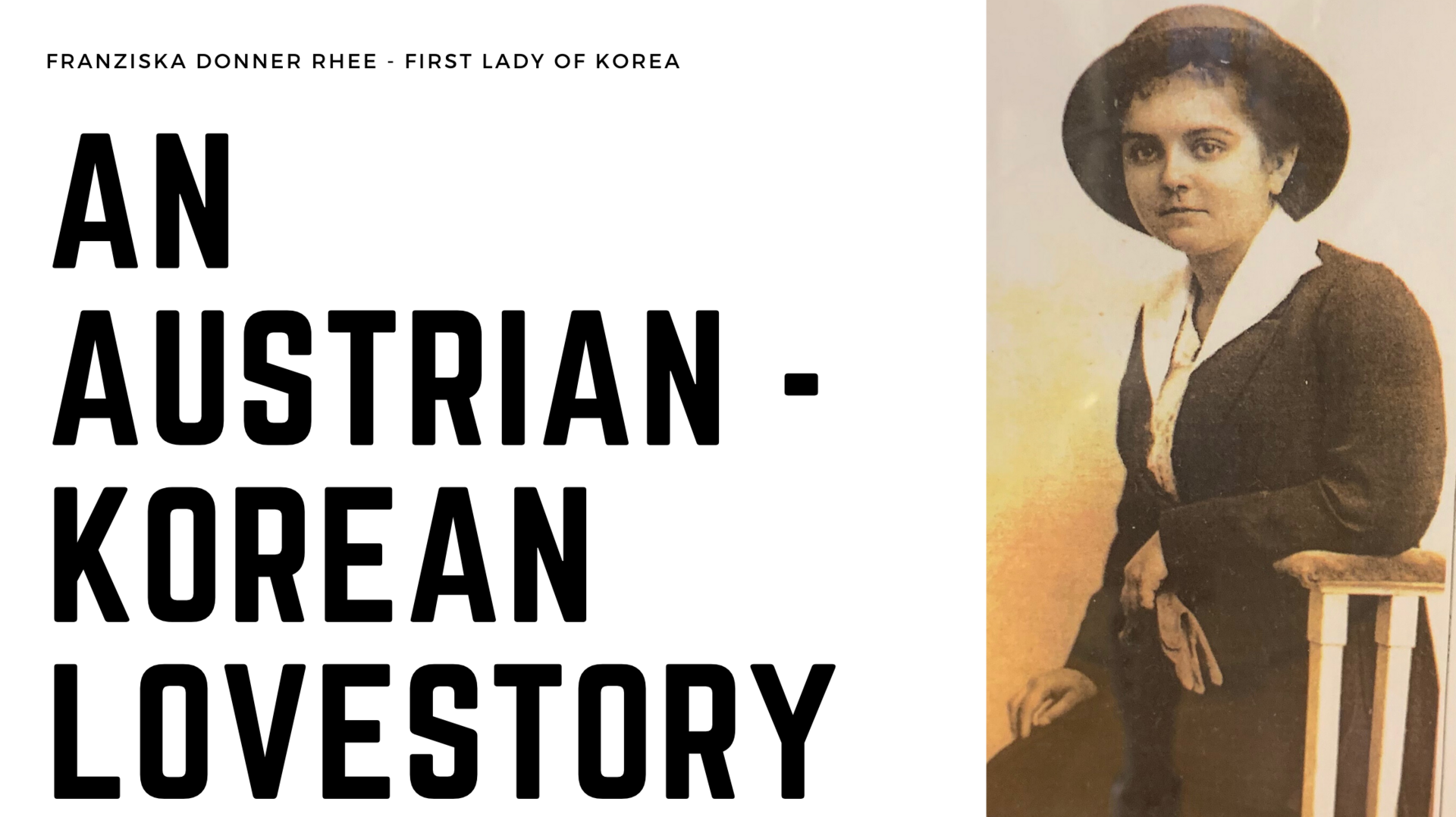"I have always been enthusiastic about good stories," states Wolfgang Ritzberger MA, the founder and owner of the newly founded publishing house that also bears his name. He had been reading books since he was a little boy, and when he moved out of home at 18, he had almost 1000 books packed in boxes. "Friends who helped me move had asked me if I would take bricks with me?". If he had to move his library today, it would not be an easy undertaking.
With "Franziska", Ritzberger presents as a neo-publisher one of the most touching love stories of the 20th century, the story of the first First Lady of Korea, the Austrian Franziska Donner-Rhee. "Soonae Lee-Fink met her in person shortly before her death and has now spent more than 30 years studying her life," says Ritzberger, who co-authored the translation and literary revision of the German edition. The story of Franziska is inspiring and touching, he says, as she literally leaves everything behind for the sake of her great love, and despite the considerable cultural hurdles, the considerable age difference - her husband Syngman Rhee was 25 years older - the political attacks and the initially dominant poverty in which the exiled politician had to live, she stands firm and stays by his side. The research was not easy, as her personal diary had been destroyed in the course of water damage in Ihwajang (a district of Seoul), where Franziska lived until her death. Thus, the only sources available were her husband's numerous documents, in which Franziska was mentioned from time to time. The reports about Syngman Rhee have not always been positive either. Although he went down in history as the first president of Korea, he is considered controversial today, and the role of his wife was and is often included in political debates. Not least because she was so different from what was expected of a wife in Korean society in the 1950s. Soonae Lee-Fink: "The book has therefore become a biographical novel, the life of Franziska Donner is the basis and the descriptions are also historically verifiable as far as they go, but many details about which the diaries could have provided information unfortunately remain hidden."
"I am convinced that if the book is capable of telling such stories, it is far from dead," says Ritzberger, pleased with the publisher's launch of this special book. "Franziska" is to be published next year also in Korean and in English, an edition as e-book or as audio book is planned before Christmas. The book is available immediately at www.verlagritzberger.at or here.
A feature film about the life of Franziska Donner is also being planned.
When Franziska Donner first met the Korean asylum politician Rhee Syng-man in Zurich, who was 25 years older than her, nobody could have guessed that she would become Korea's first First Lady almost 10 years later. Donner, born in 1900 in Inzersdorf, when Inzersdorf was still an independent, small community, studied languages at the University of Vienna and worked for the League of Nations. She had taken the inheritance of her father, a well-known soda water manufacturer, and had gone out into the world.
Korea was then occupied and dominated by Japan. Ree Syng-man was one of the Korean politicians who fought in the diaspora in the USA for the independence of his homeland. Franziska and Ree fell in love and got married. Franziska followed her husband first to the USA and then to Hawaii, where a small group of exiled politicians worked on their return.
With the support of the USA, who fought for influence in the region against the UdSSR and China after World War II, elections were held in 1948 and Ree Syng-man became the first freely elected President of Korea, and Doctor Francesca Rhee therefore the first First Lady. This was a sensation for Korea and its inhabitants, who until this day follow a very strict class consciousness, almost iron-clad rules of manners and conduct, and who still have almost extreme socio-cultural reservations towards strangers.
During these years of her husband's presidency, Francesca Rhee adopted the style and behaviour of a Korean woman in her position. This earned her great respect and recognition, despite the growing criticism of her husband's presidency, and until today, (she died in Seoul in 1992), she is still recognised and respected in Korea.
